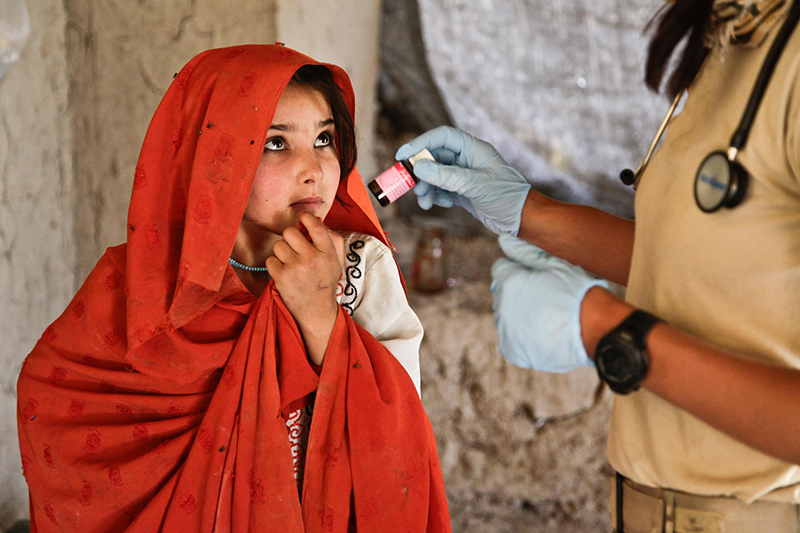Reported with assistance from Hina Hadi, Saba Gul and Rifaqat Ullah at the University of Peshawar.
Medical professionals have been leaving Pakistan in such large numbers that the country’s healthcare is reportedly stagnating.
Skilled professionals, including medical staff, are taking their skills and ambitions to developed countries where career prospects are brighter in a processed dubbed the brain drain.
A 2011 study by Pakistani academics Muhammad Wajid Tahir, Rubina Kauser and Majid Ali Tahir, found close to 36,000 professionals have left Pakistan in the past 30 years and it is estimated that between 1,000 and 1,500 doctors leave each year with no intention of returning.
Wajid Tahir, Kauser and Ali Tahir estimate that the country has lost around 25 per cent of its medical doctors to date, and the numbers are increasing.

Photo: ResoluteSupportMedia on VisualHunt.com / CC BY
A 2016 survey by Pakistani social research group Gallup Pakistan found that more than two-thirds of Pakistan’s adult population wanted to leave the country for work with half of them leaving for good. The same study in 1984 found that only 17 per cent wanted to do this.
The most commonly cited reasons for people leaving Pakistan are poor career development paths, meager salary packages, inadequate further learning opportunities, and a lack of research culture.
Pakistan’s political instability significantly contributes to the problem, as does perceived corruption within the medical system. Staff fears this affects an individual doctor’s chances of promotion and study opportunities.
For professionals already working in Pakistan, applying to take study leave – even unpaid study leave – is a complicated process which disincentives attempts at specialisation and extra training according to the 2011 study by Wajid Tahir, Kauser and Ali Tahir.
Students feel that in order to have a financially and emotionally rewarding career that meets their ambitions, they must leave their home.
A medical student in Pakistan who agreed to be interviewed about the problem but did not wish to be named said that “corruption was the main issue” and that “the political system should be improved”.
He thought his career would be better served by moving to another country in which doctors were treated equally. However he said he felt guilt at his abandonment of the “moral responsibility of doctors to utilise their skills in Pakistan”.

Photo: ResoluteSupportMedia on VisualHunt.com / CC BY
Another medical student in Pakistan said that there was a lack of funding for medical resources, facilities, and training coming from the government and that doctors abroad were better versed in the latest theory and practice.
“The government should provide more facilities, more resources, and more investment [in] health care.”
His country of choice for emigration was England, where many of his friends had already settled.
Pakistan’s medical community point to the government’s heavy dependence on international donor agencies which provide supplementary health relief: a palliative rather than curative approach.
They agree that what is needed is a proper investigation into the provision of health facilities and training, followed by funding to lay the foundations of a stronger medical establishment.
The immediate and more pressing question is what happens to the Pakistani people, watching their skilled professionals depart.
Medics blame the government for poor health in rural areas, linked to poor living conditions and little hygiene education
One of the medical students said that low literacy rates frustrated the progress even more; people who do not fully understand the nature of diseases and their transmission often do not cooperate with doctors.
Feature photo: DVIDSHUB on Visual Hunt / CC BY








[…] http://thecityjournal.net/reporting-from-pakistan/stupefying-state-pakistani-healthcare/ […]